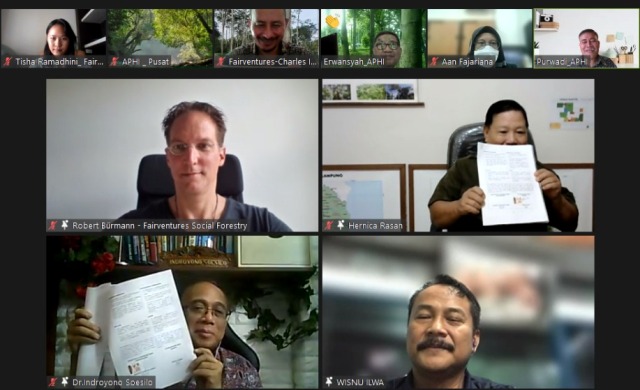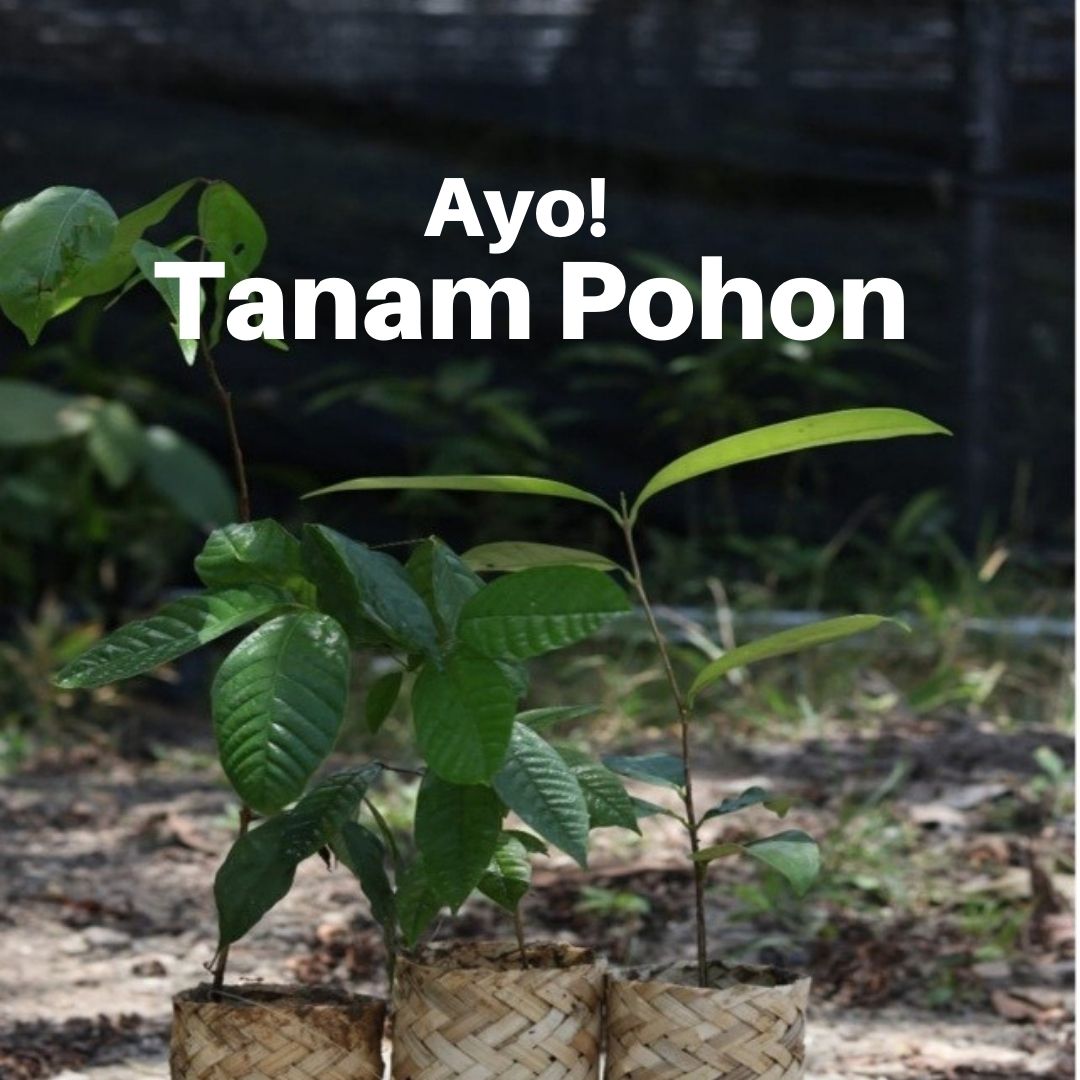The Indonesian Forest Concessionaires Association (APHI) signed a memorandum of understanding with Fairventure Social Forestry (FSF) to develop a social forestry-based plantation forest.
This collaboration is also expected to support the reduction of greenhouse gas (GHG) emissions and Indonesia’s FOLU Net Sink 2030.
The signing of the memorandum of understanding (MoU) between APHI and FSF was carried out virtually, Friday, 27 May 2022.
The MoU was signed by APHI Chairman Indroyono Soesilo and FSF Director Hernica Rasan.
Also present at the signing were FSF CEO Robert Burmann, Secretary of the Indonesian Forestry Community Communication Forum (FKMPI) Tjipta Purwita and Chairman of the Indonesian Light Wood Association (ILWA) Setyo Wisnu Broto.
In this collaboration, the German-based FSF will work together to develop social forestry-based plantations in the Forest Utilization Permit (PBPH) concessions of APHI members. Meanwhile, ILWA will be the off taker of the wood produced.
Indroyono said this collaboration was carried out as APHI’s contribution in supporting job creation in the forestry sector in accordance with the Employment Creation Act (UUCK) through multiple forestry businesses.
“This collaboration is an interesting issue and is expected to trigger all parties to get involved,” he said.
Indroyono continued, the second goal of this collaboration is to create a pilot area that can be used as a reference in the future on how to manage social forestry-based plantation forest.
The third objective of the collaboration is related to the commitment to reduce greenhouse gas (GHG) emissions. According to Indroyono, Indonesia has committed to reducing GHG emissions by 29% with its own efforts or reaching 41% with international support by 2030.
Indroyono also mentioned the commitment to support the achievement of Indonesia’s FOLU Net Sink 2030. This commitment means that the absorption of GHG from the forestry sector and land use (forestry and other land use (FOLU) is balanced or even higher than the emissions.
Indroyono hopes that the existing cooperation can be expanded in the future not only on a Business to Business (B to B) scale but also between the Indonesian government and Germany, the country where the FSF office is based.
Robet Burmann said the collaboration with APHI is a great opportunity for all parties to develop sustainable forest management involving local communities.
“This is an opportunity for all of us to develop our business as well as improve the welfare of the local community,” he said.
FSF is already running a plantation forest development scheme involving communities in Central Kalimantan.
Under the cooperation with APHI, the location of plantation forest development will be directed at Lampung, Bangka Belitung, South Sumatra, and Jambi.
“We are developing a scheme that cares about climate change, improving living standards, protecting biodiversity which includes the welfare of society and industry,” added FSF Director Hernica Rasan.
Meanwhile, Setyo Wisnu Broto hopes that through this collaboration, the export performance of light wood can continue to be positive.
“This cooperation will solve problems from upstream to downstream. Whoever can control the supply chain, he will control the market,” he said.
Setyo Wisnu revealed that within a year at least 15 million cubic meters of Indonesian light wood from the Jabon and sengon species have been exported abroad.
He hopes that the collaboration can strengthen market penetration through maximizing market intelligence so that the industry in the country can be more responsive in accordance with market needs.***



